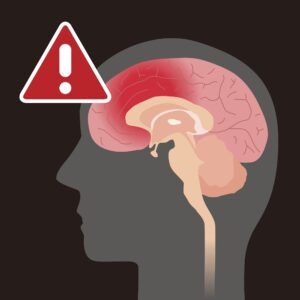6 Common Causes of Medical Misdiagnosis

Medical misdiagnosis can lead to delayed or incorrect treatment, worsening of a condition, and even death. Patients may also experience unnecessary pain, suffering, and emotional distress. Misdiagnosis can also result in financial burdens due to additional medical expenses. Explore common causes of misdiagnosis.
1. Miscommunication Between Medical Providers
Doctors and nurses may fail to communicate patient symptoms accurately or misunderstand each other's instructions. This situation can lead to incorrect diagnoses and inappropriate treatments. Inadequate documentation and incomplete transfer of patient records can further contribute to miscommunication.
Time pressures and high workloads may hinder thorough discussions and clarification among healthcare professionals. Without clear and precise information exchange, medical providers may miss vital clues, make assumptions, or misinterpret data, resulting in diagnostic errors.
2. Doctor Inexperience and Overconfidence
Doctors who are inexperienced may lack the necessary knowledge and expertise to interpret symptoms and make appropriate diagnoses accurately. They may overlook important details or misinterpret medical tests and imaging results. Doctors who are overconfident may be prone to dismissing alternative possibilities or neglecting to seek additional opinions. They may rely solely on their own judgment without considering other potential diagnoses.
Both inexperience and overconfidence can lead to premature closure, where doctors settle on a diagnosis too quickly without considering all possibilities. Such can result in misdiagnosis and inappropriate treatments.
3. Lack of Time with Patients
Doctors may rush through appointments and not adequately listen to patient concerns or gather comprehensive medical histories. Inadequate time hinders thorough physical examinations, leading to missed signs and symptoms. It may also limit the opportunity for doctors to ask probing questions and gather critical information. Rushed interactions can result in miscommunication and misunderstandings, leading to incomplete or inaccurate patient narratives.
Without sufficient time, doctors may rely heavily on quick judgments and make hasty diagnostic decisions. Such increases the risk of overlooking important details, misinterpreting symptoms, and arriving at incorrect diagnoses. Allocating adequate time for patient consultations is essential to ensure comprehensive assessments and reduce the likelihood of medical misdiagnosis.
4. Improper Testing
Improper testing can cause medical misdiagnosis by providing inaccurate or incomplete information. In particular, inadequate or faulty testing procedures may fail to detect or identify the true underlying condition. This can lead to incorrect diagnoses or the omission of critical diagnoses altogether.
Errors in sample collection, handling, or processing can compromise the reliability of test results. Insufficient training or expertise in performing tests can also contribute to misdiagnosis. Inaccurate interpretation of test findings due to human error or reliance on outdated reference ranges can further exacerbate the problem.
Ultimately, improper testing practices undermined the accuracy and effectiveness of medical diagnoses, potentially resulting in inappropriate treatment plans and compromised patient outcomes.
5. Lack of Follow Up
If a patient fails to schedule or attend necessary appointments, vital information may be overlooked. Switching doctors can exacerbate this issue, disrupting the continuity of care. Doctors may also assume that patients will take responsibility for follow-up, placing the burden on them. Such can result in failure to complete crucial tests, consultations, or referrals, leading to inaccurate diagnoses.
Timely follow-up is essential for monitoring progress, adjusting treatment plans, and ensuring comprehensive care. Active patient participation and open communication with healthcare providers are also crucial to avoid misdiagnosis.
6. Fragmentation of Care
Different healthcare professionals may order separate tests, leading to a lack of comprehensive information. With multiple points of medical care, doctors may overlook crucial details, resulting in an incomplete understanding of the patient's condition. Since no single medical professional generally has the whole picture, vital context and medical history may be missed, leading to erroneous conclusions. Consequently, patients may receive inappropriate treatments or experience delays in receiving the correct care.
The Law Offices of Cardaro & Peek, LLC, represents individuals and families harmed by medical professionals, hospitals, HMOs, and pharmaceutical companies. Our relentless pursuit of justice has resulted in hundreds of millions recovered for our clients. Contact us today, and let our experienced team fight for the compensation you deserve.










